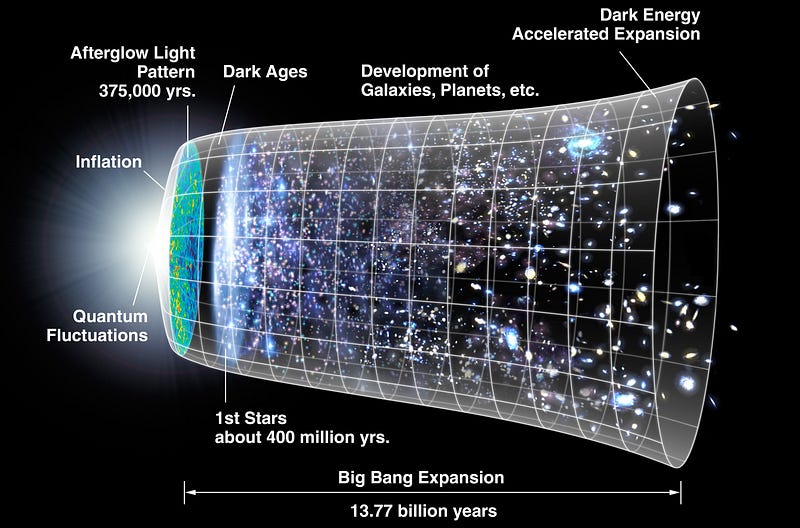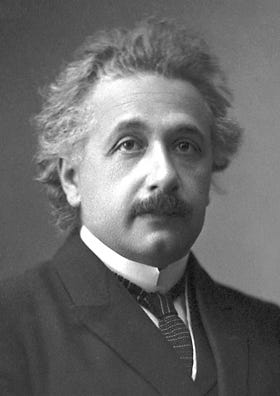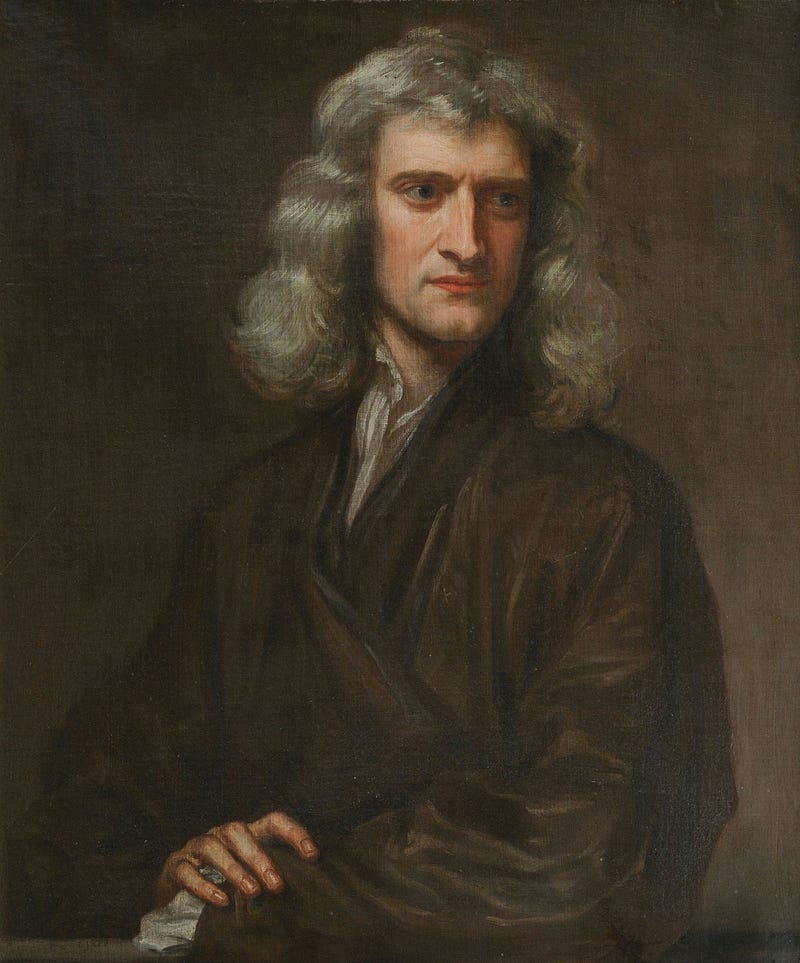The Scientific Gospel: A New Perspective on Our Origins
Written on
Chapter 1: The Void Before Creation
In the vast emptiness before existence, there was absolutely nothing—no science, no deities, and no creatures. There was simply an absence of everything. This state of non-being transcended the concept of beginnings.
Then, at an unspecified moment in time, an explosive event occurred…
BANG
A universe emerged, though it was not the one we inhabit. This universe had its own unique tales to tell. Then, once again…
BANG
Yet again, this universe was not our own. Finally, the moment arrived…
BANG
This time, it marked the birth of our universe. It underwent a myriad of transformations, as depicted in the following illustration:

According to the biblical account, Moses stated that creation spanned six days. Yet, the graphic above suggests that it took approximately 13.77 billion years to reach the present day, highlighting how relatively brief humanity's existence has been within this timeframe.
When humans finally appeared, they roamed the Earth. We recognize the existence of Ten Adams and Eighteen Eves:
Ten Adams and Eighteen Eves
Were these figures actual individuals? Given the extensive timelines involved, it's improbable. However, what is evident…
At some point, early human societies engaged in superstition and shamanistic practices, marking the dawn of religion. Over time, these beliefs evolved into various polytheistic faiths, eventually leading to the emergence of contemporary monotheistic religions.
Amidst this evolution, science also emerged. It has effectively challenged many religious doctrines, yet people continue to adhere to these beliefs for various reasons. Two notable figures in the realm of science are Albert Einstein and Isaac Newton, whose legacies endure to this day.


Many religious doctrines propagate misleading ideas, often inducing guilt in individuals to extract financial contributions for absolution. However, science has progressed to a point where it can refute concepts like the Kaman Cosmological Argument. Recently, a mathematical study demonstrated that the Big Bang can spontaneously arise from nothingness without divine intervention. These topics are explored further in the following resource:
Science provides a path to forgiveness, not through doctrine but through adherence to natural laws and the exercise of free will for personal growth. One might consider refraining from supporting political parties that oppose scientific progress and instead contribute to scientific endeavors.
Thank you for your attention to this perspective. (I might expand on this piece in the future.)